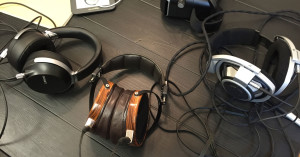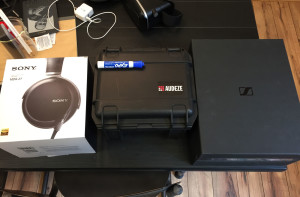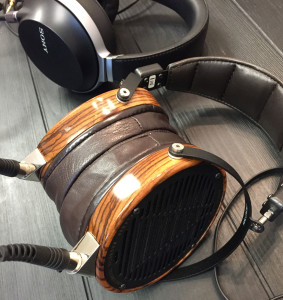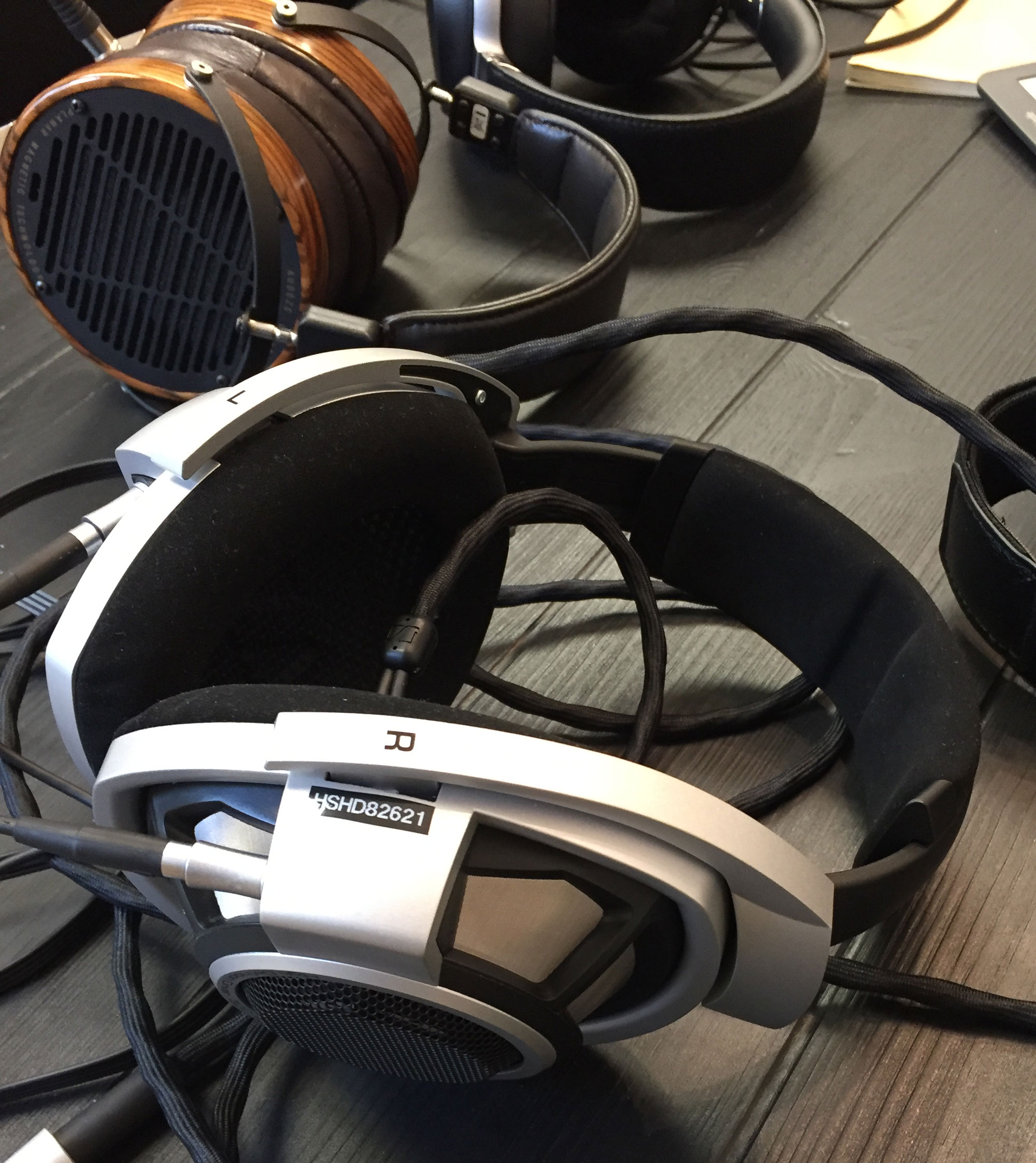About four months ago a friend forwarded a link to Lumoid.com who now rents high end headphones (sadly, Lumoid is no more). It had just been covered in Lifehacker or one of the other high profile blogs so it took until last month for my order to come up. For $75 I had two weeks with three top shelf headphones:
- Audeze LCD-3 ($1,945)
- Sennheiser HD 800 ($1,599)
- Sony MDR-Z7 ($699)
Of course for the majority of the time they were hidden in my closet so that my kids wouldn’t look at them

or breathe on them. I also waited on writing this up until they were safely back in the Bay Area in case anyone considered doing an Ocean’s 11 heist with me actually having something of value in my home.
If you’re in a hurry, the punchline is: I don’t think spending this much money on headphones is worth it. Yes, 2 of the 3 sounded amazing, but maybe 5% better than my Sony MDR-V6 headphones that cost under $200. For those still wondering what $4,243 (+tax, +shipping & handling) gets you…

As you’d expect from headphones this expensive, the boxes were impressive. The Sony and Sennheiser were similar, opening like a trophy case. The Audeze come in a plastic travel case, like the kind you’d use to transport a monitor to a trade show. Basically about half a piece of luggage, leading to the first lesson – this is not stuff you travel with.
Note that the Audeze and Sennheisers are open back headphones, the ear cup is vented so air flows in and sound flows out. These give them a much more natural sound, as if you are in a concert hall, but it means that on a noisy subway you’ll hear the train, and the passengers will hear your music, so probably not a wise choice.
All three of them have proprietary cables with unique connections to the headphones. The Audeze and Sony’s plug in and then are screwed down to prevent them being pulled out. The Senn’s have some crazy mount with a pin that makes them only insertable in one position. The Audeze come with an XLR cable so you can have a balanced connection, which is supported on some high end gear. A balanced connection means that the signal is sent down two wires, inverted on one of them. It’s ingenious, when the inverted one is restored any interference picked up along the line cancels itself out. Of course I’ve never personally seen someone using a balanced connection to listen to music, but you could say that’s just because I hang with a low rent crowd.

Over the past couple of years I’ve come up with a number of theories on headphones, one of them being that fit and comfort are more important than any specs or technical analysis. It doesn’t matter that the Audeze sound better than anything I’ve ever listened to, I don’t want to wear anything that heavy so I wouldn’t buy them even if I was sitting on a pile of cash I had no use for. The Sennheisers also sound amazing, and are very light and comfortable. But I’ve also been impressed with the Sennheiser HD 558 which you can currently get a used set on Amazon for $64. Yes I would say that the HD 800 is two or three times better considering the sound, fit, weight, and quality. Paying 25 times the price for it? Personally, the value is not there. Factor in losing or breaking a pair now and then and the economics get uglier quick.
I did not like the sound of the Sony headphones compared to other Sonys I’ve heard. Usually they have a very clear mid range and high end, and this pair did not. This comes to another point about my review, the case could be made that listening to uncompressed digital files via a Dragonfly DSP and a Meridian Explorer 2 is not the same as spending $10,000 on an amp to drive these headphones to the extreme. I admit that this could be true, but that throwing down another $10,000 is not going to tilt the odds in the headphones favor in my value equation.
In closing, I won’t be dropping a boatload of money on headphones, but I would not hesitate to rent from Lumoid again. They also rent photography gear, and fitness wearables, two areas where you definitely want to try before you buy.
For past writing on audio start here.
